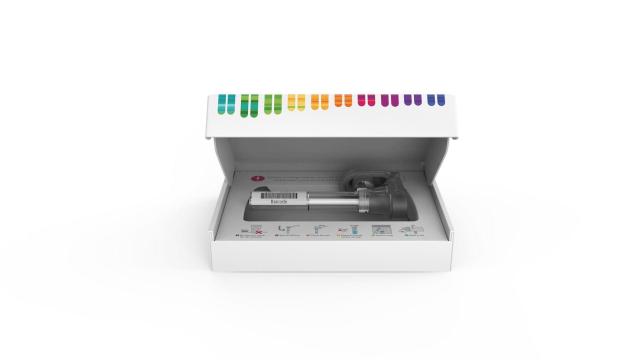Medical tests can be scary and expensive, so providing someone the option to non-invasively and more affordably find out if they are at risk for cancer from the comfort of their home is an enticing offer. But doctors are pointing out that these at-home kits aren’t always accurate, and patients are coming in for major surgeries that they don’t need.
“The NHS is incredibly irritated by these results because [in the case of BRCA] they’re more often wrong than right,” Professor Anneke Lucassen, a clinical geneticist at Southampton University and chair of the British Society for Genetic Medicine, told the Guardian, referring to at-home kits that test women for mutations for the BRCA genes, which signals their risk for breast and ovarian cancer. “I’m not saying ban these tests,” she said, “but they need more regulating.”
Lucassen told the Guardian that she had a female patient who, because the results of an at-home kit told her she had a BRCA mutation, had scheduled a double mastectomy. But when the testing was done in an NHS lab, the results came back negative. “Can I have the surgery anyway just to be on the safe side?” the patient reportedly asked Lucassen, who said that the patient “wasn’t at all reassured by finding this was a false positive,” even if she did decide to not have the surgery per her doctor’s recommendation.
“I feel this is the tip of the iceberg,” Lucassen said, noting that she herself knows about ten instances in which individuals took an at-home genetics test and received positive results for cancer risks that NHS labs found to be inaccurate.
It’s not hard to imagine how the inaccuracy of such sensitive information can not only fuck up someone’s day but their entire life. For those who might not be able to discern which results are more credible, getting a false positive from an at-home kit and a negative from the lab might lead to unnecessary, life-altering surgery in the event that fear or misguidedness outweighs the assurance of a medical professional.
And on the flip side, there’s a dangerous consequence to individuals blindly accepting a negative result from an unreliable at-home kit as truth. For those who might be at risk for cancer, a false negative might prolong their decision to have a doctor run more credible lab tests.
“The findings are shockingly bad,” Caroline Wright, a genomics researcher at Exeter University, told the Guardian. Wright recently led an analysis of a commercial DNA chip and found that it was accurate only 17 per cent of the time when testing for BRCA mutations and that it failed to detect actual mutations in over half of 50,000 individuals tested. “At the point where they’re this bad, you have to think about not sharing the data. It can be so damaging to the individual if they find out this completely erroneous information.”
Nearly this exact incident also happened outside of a controlled analysis — in September of 2017, genetic testing company Invitae had to retest 50,000 blood and saliva samples after it missed a hereditary colon cancer mutation in one of its user’s tests.
Through retesting, the company discovered that the procedures weren’t testing for the Lynch syndrome variant, which can indicate a higher risk of colon cancer. Invitae remedied its testing procedure but told Gizmodo at the time that the error went unnoticed for 11 months.
Concerns over the accuracy of these at-home tests aren’t especially unique to the NHS — Haywood L. Brown, M.D., president of the American College of Obstetricians and Gynecologists (ACOG), issued a statement last year after the U.S. Food and Drug Administration approved consumer testing for the BRCA mutations that identify risks for breast and ovarian cancer. Brown wrote that the organisation’s recommendation is that individuals seek out the expertise of a health care professional.
“Without clinical guidance, patients may be mistakenly reassured or unnecessarily concerned about cancer risk based on the results of their DTC test,” Brown wrote.
“Health care providers may also face uncertainty about accurately interpreting and counselling patients with questions about both positive and negative test results. And both instances have the potential to generate misinformation, confusion, excess cost for unnecessary tests and fear for patients and health care providers.”
